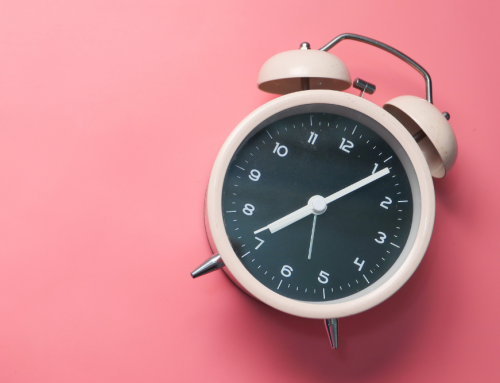“If only there were more hours in a day.”
How many times have you found yourself thinking that?
But let’s be honest with ourselves. If we did have an extra hour during the work day, would we spend it any differently than the other 9 hours? Or would we scramble through those 60 minutes calling clients while folding laundry, practicing scripts in the car on the way to the next showing, and responding to every beep and chime and buzz emanating from our pockets, all while running through a mental checklist and wondering if there’s anything we’re forgetting?
Exhausting.
It’s time to stop multitasking, once and for all. In this blog post, we’ll cover why multitasking is the enemy of productivity and how you can stop doing it.
Why You Should Stop Multitasking
In an article for Harvard Business Review, Peter Bregman makes the case for why we should stop multitasking and start singletasking:
1) Switching between tasks makes you 40% less productive. In a 2001 study in which participants were asked to frequently shift from one task to another, researcher David Meyer, PhD, noted that brief mental blocks were created during those transitions, costing participants up to 40% of their productive time.
2) Distractions lower your IQ by 10 points. Research from the University of London found that the distraction of incoming phone calls and emails can cause your IQ to drop 10 points. That’s the equivalent of losing a night of sleep.
3) When multitasking, you’re more likely to make mistakes. Studies cited by Verywell Mind have shown that students who multitask in class tend to have lower GPAs, and older adults who multitask while driving are more likely to make mistakes.
4) You miss out on things when you’re not 100% paying attention. It’s tempting to work on your CMAs while you’re listening in on your brokerage’s conference call. But when you don’t give something your full attention, you miss out on nuances, you prevent creative thinking, and you don’t get to experience the level of deep thought that leads to breakthroughs.
5) It bleeds into our personal lives. When we get into the habit of multitasking at work, it can spread to our life outside the office. We can become distracted by a new email while talking to our spouse or partner; we can miss our kid’s cool new dance move because we were busy checking the MLS; we can completely miss what our best friend said because Beyoncé just added to her story on Instagram.
Ready to stop multitasking? After learning all of this, I sure am!
How Real Estate Agents Can Begin Single-Tasking
1) Turn off phone notifications. Most phones have a function for turning off all notifications or going into Do Not Disturb mode. You can also adjust the notification settings for individual apps, so your phone isn’t lighting up all day long with pop-ups from Groupon, Target, or whatever it is that haunts you throughout the day.
2) Find a distraction-free place to work. Working from home made this a challenge, but it’s amazing how people have adapted. Shut yourself in a quiet room, invest in some noise-cancelling headphones, get up early so you can work in a quiet house, or put a Do Not Disturb sign next to your spot at the dining room table. Whatever you need to do to communicate to others that, in any particular moment, you need a distraction-free zone in which to single-task.
3) Try the 20-minute rule. Commit to focusing on just one task—for just 20 minutes. It’s a short enough amount of time that even the most addicted of multitaskers can do it. If you use an automation platform like Realvolve, you can create reminders that will prompt you when it’s time for your next 20-minute block.
4) Check emails in batches. Rather than responding to every email as soon as it pops in, schedule two or three time blocks during your day to read and reply to messages. (This is tricky for real estate agents, because you’ll want to keep an eye out for emails from prospective clients. If you can’t delegate email monitoring to an assistant, an auto-responder can take a lot off your plate!)
5) Give yourself tight deadlines. We multitask because we don’t want to waste time. But if we give ourselves a tight deadline, reasons Bregman, “we can’t help but focus on them.”
“There’s nothing like a deadline to keep things moving. And when things are moving fast, we can’t help but focus on them. How many people run a race while texting? If you really only have 30 minutes to finish a presentation you thought would take an hour, are you really going to answer an interrupting call?”
– Peter Bregman, CEO of executive coaching company Bregman Partners
There’s a ton of great information out there on eliminating distractions, getting into a flow, engaging in deep work, and single tasking. Check out these articles to learn more:
- 9 Tips To Stop Multi-Tasking Immediately (Jotform)
- 5 Ways Real Estate Agents Can Be More Productive (Realvolve)
- Finding Your Focus Through Deep Work (Entrepreneur)
What would happen if you stopped multitasking for one week?
Are you up for the challenge? I sure am.
As someone who writes for a living, the ability to focus and get lost in my work is crucial. I certainly don’t need my phone buzzing at me every 3 minutes. I want to be fully present in whatever I’m doing, whether it’s researching for my next article or playing fetch with my dog.
So what about you? Do you want to be more engaged during your Zoom meetings? Do you want to pick up on the anxious note in your client’s voice when you talk to them on the phone?
And at the end of the day, do you want to be able to close your laptop and set your phone to Do Not Disturb, and be able to completely relax, knowing that you put 100% of your attention into everything you did today?
Let’s start today—let’s single-task for an entire week—and see what happens.





